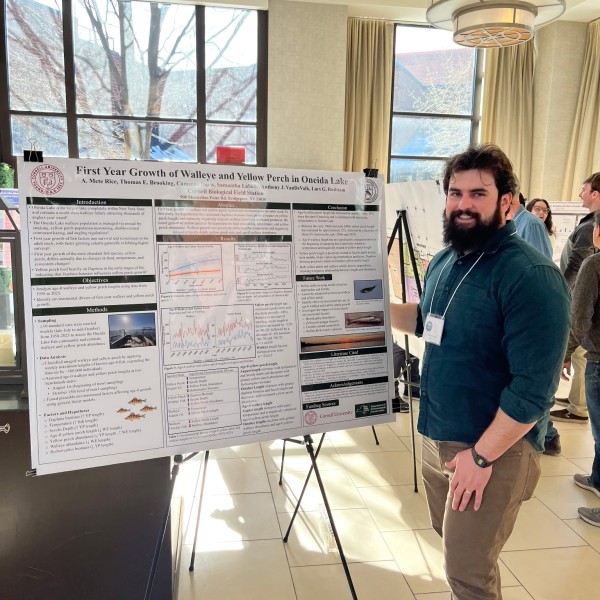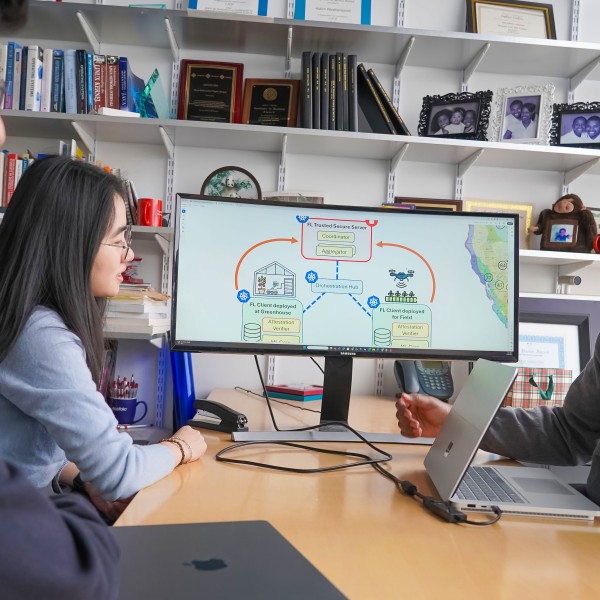Academic focus: Nutrigenomics, trace mineral bioavailability, dietary mineral deficiencies, physiological biomarkers, bioactive compounds, the microbiome, and the functionality and morphology of the small intestinal brush border membrane (which is the nutrients' digestive and absorptive surface)
Research summary:
My team conducts multidisciplinary research that links the research fields of food science and nutrition in order to better understand how diet and physiological status affect intestinal functionality, morphology and the microbiome. We aim to better understand how diet and physiological status affect intestinal functionality, morphology, the microbiome and overall health.
Beyond research, our lab is interested in training future generations of scientists and educating the public about the value of scientific research and knowledge (both basic and applied research).
What do you like to do when you’re not working?
I enjoy traveling and visiting new places around the world (68 countries and territories so far). I love cooking and enjoy exploring various cuisines. In addition, I enjoy reading, live music and international cinema. I also practice kickboxing regularly. My partner and I have two dogs (Lily and Shula), and I love spending time playing with them.
What are three adjectives people might use to describe you?
Ambitious/Curious, Focused, Observant
What brought you to Cornell CALS?
The people, top notch research and the diverse community. From collaborating with faculty in diverse fields, to academic and administrative staff, to students, and the meaningful engagement of stakeholders, it’s a great community that really supports progress in research and education.
What do you think is important for people to understand about your field?
Simply, we are what we eat! It is important to know the source and composition of our food and food products, understand how our diet affects our health, and how dietary ingredients can support health improvement.
Why did you feel inspired to pursue a career in this field?
Micronutrient deficiencies affect approximately 30% of the world’s population. In the United States, about 12% (~40 million) of the general population and 40% (~18 million) of those over age 65 are at risk for zinc deficiency due to inadequate dietary intake and less absorption of this essential nutrient. Zinc and iron inadequacies are associated with poor growth, depressed immune function, increased vulnerability to and severity of infection, adverse outcomes of pregnancy and neurobehavioral abnormalities.
Deficiencies of zinc and iron are a major cause of early childhood morbidity and mortality, and vitamin A deficiencies affect over 500,000 children worldwide every year — many go blind as a result. As part of the ongoing battle in dietary micronutrient deficiencies, the understanding of the role that these factors play in various metabolic and physiological pathways is vital in alleviating these dietary deficiencies.
What’s the most interesting thing you’ve discovered about Cornell so far?
With over 900 student organizations, I was amazed to discover that there’s a student organization for anything and everything! This is a further indication of how much the Cornell University community is diverse, open and welcoming to all.
If you had unlimited grant funding, what major problem in your field would you want to solve?
World hunger and related challenges — focusing on finding sustainable and effective solutions (economic and social) for dietary deficiencies of iron, zinc and vitamin A.
Learn more about Elad's work on the Tako Lab website and in his profile on the Department of Food Science website.





